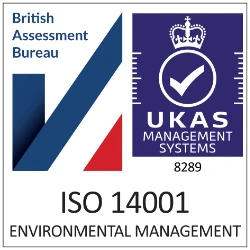
Turbulence, learnings and a look into the future: GLAS Frankfurt gives outlook on the German real estate market

Turbulence, learnings and a look into the future: GLAS Frankfurt gives outlook on the German real estate market
By Anna Kreuter – TMG Team Leader
It has been a tumultuous 2024 for the German real estate market.
The first quarter of 2024 began with many of the biggest companies in German real estate reporting a significant downturn in transaction volumes, followed by an uptake in the second quarter of the year.
CBRE for example published their ‘Germany Investment Market Q1 2024’ report, stating that the transaction volume had dropped 16% from the same period in 2023, with a volume just shy of €6.1bn invested within the first three months of the year. Investment levels on residential real estate are also reported to be 20% below the longer-term five-year average.
Following this, their ‘Germany Investment Market Q1-Q2 2024′ report stated that the transaction volume exceeded the numbers of same period in 2023. It showed a 15% increase, resulting in EUR 14.2bn invested in the first half of 2024. Q2 transactions made a noticeable contribution to this (a 26% increase).
JLL also reported that in the first half year 2024, the transaction volume in Germany amounted to EUR 15.7bn. This is around 10% higher compared to the same period in 2023. Similarly, Q2 transactions also made a noticeable contribution to this.
Despite these encouraging figures, the scale of the downturn from the last two years has been one of significant size and stature. And, there is still an overwhelming majority that feels that the correction in the German real estate market has not yet peaked.
June’s quarterly house-price index signal another period of decline – though the expectation is that this will be outweighed by a boost in the value of commercial real estate.
In these reports, it is noted certain industries, such as construction, remained upbeat despite the reduced investment and transaction numbers.
And it seems that this positive outlook does have some merit.
Germany reporting a larger-than-expected decline in the inflation rate for June (Reuters, 2024), and the consensus that interest rates will fall in the near future underpin the narrative that there are some silver linings for the mostly-cloudy market outlook.
But there is in no doubt that the market recovery won’t happen overnight.
A variety of industry and economic experts suggest that even as the recovery begins, the real estate market will suffer the impacts stemming from this downturn for the foreseeable future.
These impacts are likely to present challenges too big for many projects and businesses, making it difficult for them to survive.
This has been the case for many high-profile German real estate companies and projects, and several of those the GLAS team have been happy to support.
With many properties and portfolios unable to be refinanced at preferential rates (if at all), and company insolvencies in the first half of 2024 surpassing the same period of 2024 by 41% (Reuters, 2024) – the second half of this year looks set to remain a turbulent one.
What can be learned from our experience?
The team at GLAS have been a key player in several recent restructuring transactions, covering both loan agency and debt capital markets capacities.
This broad spectrum of involvement means GLAS has unique exposure to the inner-workings of the restructuring process – including Flexible 26A Restructuring Plans – allowing us to identify some key learnings to raise for those unacquainted with restructurings:
These restructurings are increasingly litigious and complex. These restructuring plans divide opinion and often attract exaggerated media scrutiny.
Generally, companies should be wary of presenting a part 26A restructuring plan that offers no compensation, or “give and take,” to out of money creditors in exchange for a complete release of their claims.
It is also true that shifting the COMI of the plan company should be sufficient to show connection to the English jurisdiction.
The team at GLAS feel that a COMI shift does not necessarily constitute “bad forum shopping,” providing the company can show the shift was done to promote the best solution for stakeholders and the company*.
Companies must be prepared for their expert and witness evidence to be heavily scrutinised under cross-examination and therefore, it is imperative that companies moving to a Part 26A restructuring plan have strong evidence to back up a valuation and have undertaken an assessment of other viable options.
Finally, foreign companies wishing to propose a Part 26A restructuring plan need to be wise to the threat of litigation in jurisdictions outside of the United Kingdom. This litigation may be used by disgruntled creditors to disrupt the plan.
However, many of the high-profile transactions show that such actions can be successfully fought in parallel with the Plan proceedings, and highlight the importance of working with an independent, neutral and experienced Agency team.
A look into the future – what do the team foresee in the next two years for real estate in Germany?
As mentioned earlier, it is expected that financing conditions in the European real estate market will remain challenging over the next two years, regardless of the expected improvements.
But for some, these challenges represent opportunities.
For investors in private debt, we expect CRE debt returns to continue to be an attractive proposition across the capital stack, both within the wider real estate market and in a multi-asset context.
The GLAS team have noticed positive sentiment from investors despite the stormy outlook and negative press on the market conditions.
As a result, it is possible there will be a pick-up in fundraising activity towards the end of 2024, with the large debt funding gap creating significant refinancing opportunities.
Finally, the prevalence of non-performing loans is likely to increase in coming years, presenting alternative lenders with a potential opportunity to offer workout, and restructuring solutions to institutional clients.
The implementation of the new EU Directive at the end of 2023, intended to regulate the sale, purchase and servicing of non-performing loans, may also result in a squeeze on capacity in the market to provide services in this segment.
GLAS are proud to have been proactive in this regard in both France and Germany in order to continue providing valuable expertise to the market.
As the number of restructurings and refinancings grow, and non-traditional solutions are adopted by institutional clients, a positive knock-on effect for secondary and support service providers is also highly likely – as an increase in demand for alternative services increases the need for niche expertise in spaces like loan agency and debt administration.
What makes GLAS the right partner for German real estate organisations?
The GLAS team in Germany have a wealth of expertise and a proven track record supporting the full suite of loan agency, restructuring and insolvency, and debt capital markets services across many industries including real estate.
As proven in our involvement with several recent restructuring transactions – GLAS is set up to be flexible and commercially minded.
We combine local knowledge with a global footprint to offer our clients unparalleled service and support to help organisations reach the best possible resolution for stakeholders.
GLAS is also one of the only licensed providers to hold both a PDS2 License from BaFin and a Collection License (a legal requirement to collect debts in Germany) from the higher regional court of Frankfurt.
GLAS’ market leading technology portals ensure manual, labour-intensive processes are made more efficient, as well as a reduction in the risk of human error and improved visibility through enhanced reporting.
The GLAS Frankfurt team have an in-depth understanding of all areas of real estate financing and understand the intricacies of working on projects of significant size and scale – making us the perfect partner for the German real estate market.
*All information in this article is not intended to be taken as legal advice and is purely based on our experience and research.
Contact GLAS
For more information on how we can support with real estate transactions, please contact:
Anna Kreuter
GLAS EMEA
GLAS US
GLAS AU















